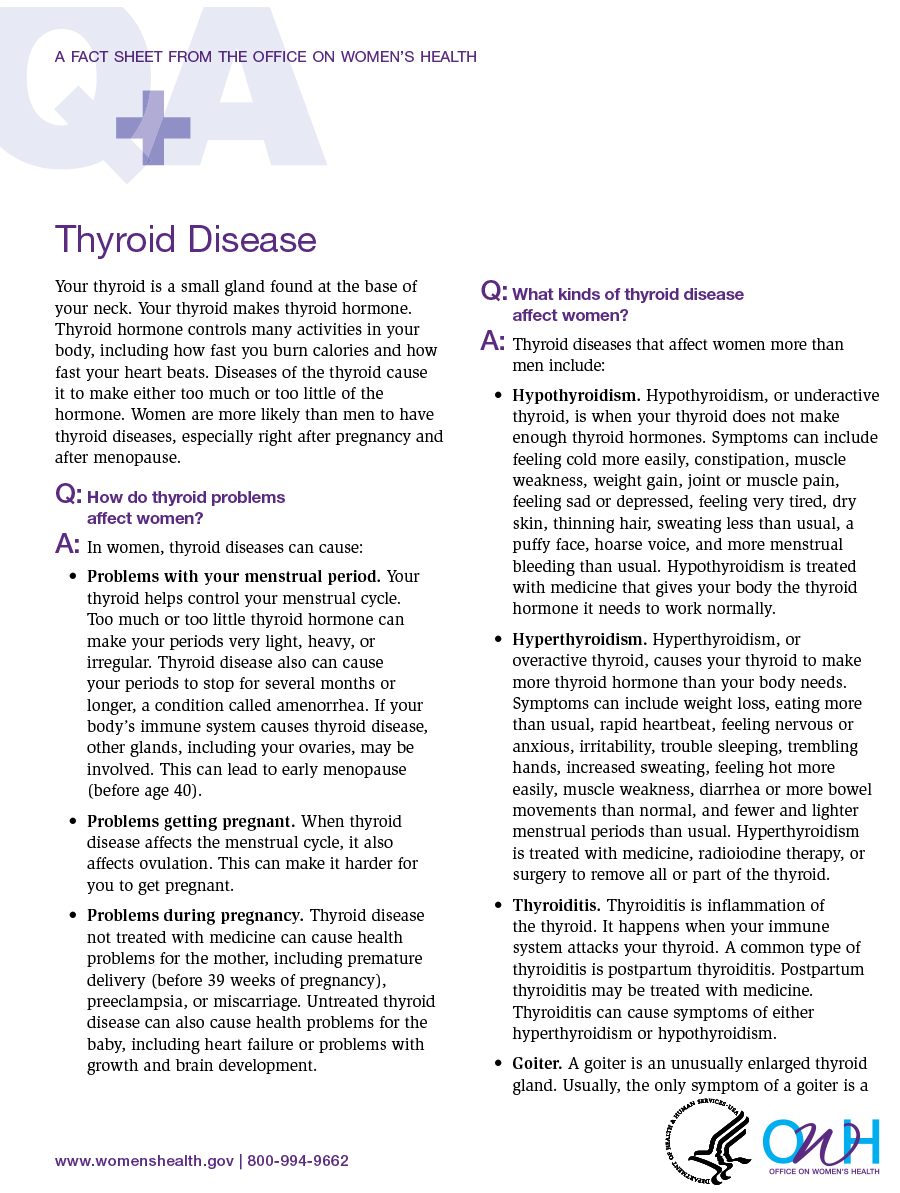Print and download 1-page patient fact sheets in English or Spanish on topics such as Graves' disease, Hashimoto's disease, lupus, and thyroid disease.
Fact sheets
Health information on many of the autoimmune diseases that affect women.
- Graves' disease fact sheet (PDF, 100 KB)
- Hoja de datos sobre la enfermedad de Graves (PDF, 100 KB)
- Hashimoto's disease fact sheet (PDF, 125 KB)
- Hoja de datos sobre la enfermedad de Hashimoto (PDF, 125 KB)
- Lupus fact sheet (PDF, 96 KB)
- Hoja de datos sobre el lupus (PDF, 101 KB)
- Thyroid disease fact sheet (PDF, 135 KB)
- Hoja de datos sobre la enfermedad de la tiroides (PDF, 140 KB)


